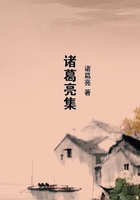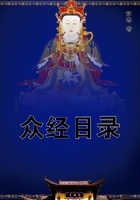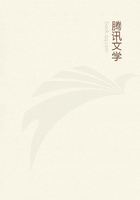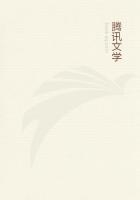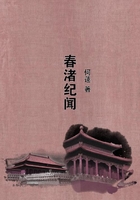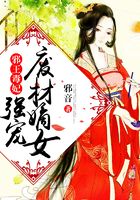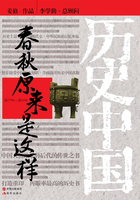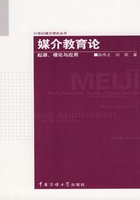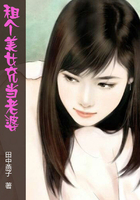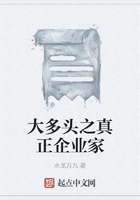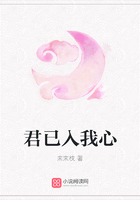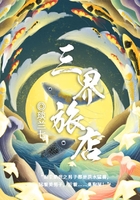Once when I was out shooting with a setter near Pirogovo, I drove in to Uncle Seryozha's to stop the night.
I do not remember apropos of what, but Uncle Seryozha averred that Lyovotchka was proud. He said:
"He is always preaching humility and non-resistance, but he is proud himself.
"Nashenka's [14] sister had a footman called Forna.
When he got drunk, he used to get under the staircase, tuck in his legs, and lie down. One day they came and told him that the countess was calling him. 'She can come and find me if she wants me,' he answered.
[14] Maria Mikhailovna, his wife.
"Lyovotchka is just the same. When Dolgoruky sent his chief secretary Istomin to ask him to come and have a talk with him about Syntayef, the sectarian, do you know what he answered?
"'Let him come here, if he wants me.' Isn't that just the same as Forna?
"No, Lyovotchka is very proud. Nothing would induce him to go, and he was quite right; but it's no good talking of humility."
During the last years of Sergei Nikolayevitch's life my father was particularly friendly and affectionate with him, and delighted in sharing his thoughts with him.
A. A. Fet in his reminiscences describes the character of all the three Tolstoy brothers with extraordinary perspicacity:
I am convinced that the fundamental type of all the three Tolstoy brothers was identical, just as the type of all maple-leaves is identical, despite the variety of their configurations. And if I set myself to develop the idea, I could show to what a degree all three brothers shared in that passionate enthusiasm without which it would have been impossible for one of them to turn into the poet Lyoff Tolstoy. The difference of their attitude to life was determined by the difference of the ways in which they turned their backs on their unfulfilled dreams.
Nikolai quenched his ardor in skeptical derision, Lyoff renounced his unrealized dreams with silent reproach, and Sergei with morbid misanthropy. The greater the original store of love in such characters, the stronger, if only for a time, is their resemblance to Timon of Athens.
In the winter of 1901-02 my father was ill in the Crimea, and for a long time lay between life and death. Uncle Seryozha, who felt himself getting weaker, could not bring himself to leave Pirogovo, and in his own home followed anxiously the course of my father's illness by the letters which several members of our family wrote him, and by the bulletins in the newspapers.
When my father began to improve, I went back home, and on the way from the Crimea went to Pirogovo, in order to tell Uncle Seryozha personally about the course of the illness and about the present condition of my father's health. I remember how joyfully and gratefully he welcomed me.
"How glad I am that you came! Now tell me all about it. Who is with him? All of them? And who nurses him most? Do you go on duty in turn? And at night, too? He can't get out of bed. Ah, that's the worst thing of all!
"It will be my turn to die soon; a year sooner or later, what does it matter? But to lie helpless, a burden to every one, to have others doing everything for you, lifting you and helping you to sit up, that's what's so awful.
"And how does he endure it? Got used to it, you say? No; I cannot imagine having Vera to change my linen and wash me. Of course she would say that it's nothing to her, but for me it would be awful.
"And tell me, is he afraid to die? Does he say not? Very likely; he's a strong man, he may be able to conquer the fear of it. Yes, yes, perhaps he's not afraid; but still--"You say he struggles with the feeling? Why, of course; what else can one do?
"I wanted to go and be with him; but I thought, how can I? I shall crack up myself, and then there will be two invalids instead of one.
"Yes, you have told me a great deal; every detail is interesting. It is not death that's so terrible, it's illness, helplessness, and, above all, the fear that you are a burden to others.
That's awful, awful."
Uncle Seryozha died in 1904 of cancer in the face.
This is what my aunt, Maria Nikolayevna, [15] the nun, told me about his death. Almost to the last day he was on his legs, and would not let any one nurse him. He was in full possession of his faculties and consciously prepared for death.
[15] Tolstoy's sister. She became a nun after her husband's death and the marriage of her three daughters.
Besides his own family, the aged Maria Mikhailovna and her daughters, his sister, Maria Nikolayevna, who told me the story, was with him, too, and from hour to hour they expected the arrival of my father, for whom they had sent a messenger to Yasnaya. They were all troubled with the difficult question whether the dying man would want to receive the holy communion before he died.
Knowing Sergei Nikolayevitch's disbelief in the religion of the church, no one dared to mention the subject to him, and the unhappy Maria Mikhailovna hovered round his room, wringing her hands and praying.
They awaited my father's arrival impatiently, but were secretly afraid of his influence on his brother, and hoped against hope that Sergei Nikolayevitch would send for the priest before his arrival.
"Imagine our surprise and delight," said Maria Tolstoy, "when Lyovotchka came out of his room and told Maria Mikhailovna that Seryozha wanted a priest sent for.
I do not know what they had been talking about, but when Seryozha said that he wished to take the communion, Lyovotchka answered that he was quite right, and at once came and told us what he wanted."
My father stayed about a week at Pirogovo, and left two days before my uncle died.
When he received a telegram to say he was worse, he drove over again, but arrived too late; he was no longer living. He carried his body out from the house with his own hands, and himself bore it to the churchyard.
When he got back to Yasnaya he spoke with touching affection of his parting with this "inscrutable and beloved" brother, who was so strange and remote from him, but at the same time so near and so akin.

